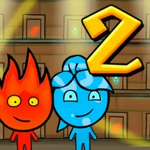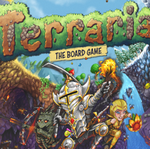
tetris Unblocked
## Tetris: A Timeless Puzzle That Still Holds Up
Tetris. The name conjures images of falling blocks, frantic rotations, and the satisfying *clunk* of a perfectly placed line. More than just a game, Tetris is a cultural phenomenon, a testament to the power of simple, elegant design, and a puzzle that continues to captivate players decades after its creation.
Created by Alexey Pajitnov in 1984, Tetris's deceptively simple premise belies its addictive nature. Seven differently shaped tetrominoes – four-block pieces – fall from the top of the screen, and the player must manipulate them to create horizontal lines, which then disappear, clearing space and earning points. The game's speed increases progressively, leading to a thrilling escalation of challenge and intensity.
Tetris's enduring appeal lies in its accessibility and almost infinite replayability. Anyone can pick up and play, understanding the basic mechanics immediately. Yet, mastering the game requires skill, strategy, and quick reflexes. The seemingly simple act of placing blocks becomes a complex dance of anticipation, planning, and reaction. Players learn to predict upcoming pieces, strategize about filling gaps, and execute rapid rotations under pressure.
Beyond its gameplay, Tetris's impact extends far beyond the confines of the game itself. Its minimalist graphics, memorable soundtrack, and universally understood rules have allowed it to transcend generations and platforms. From its humble beginnings on the Electronika 60 to its ubiquitous presence on virtually every gaming device imaginable, Tetris has adapted flawlessly to new technologies, maintaining its core gameplay while enhancing its presentation.
The game's influence on the gaming industry is undeniable. It established the foundation for countless puzzle games that followed, and its simple yet profound mechanics continue to inspire developers today. Furthermore, its research-proven ability to improve cognitive skills, such as spatial reasoning and problem-solving, has made it a subject of academic study.
However, Tetris is more than just a game or a tool for cognitive enhancement. It's a shared experience. The frustration of a game over, the exhilaration of a perfect clear, and the quiet satisfaction of a well-executed rotation are all universally understood emotions. It's a game that connects people through its shared challenge and its simple, yet profound, beauty.
In conclusion, Tetris's enduring legacy is a testament to its ingenious design and its ability to tap into the fundamental human desire for challenge, mastery, and satisfying accomplishment. It's a game that continues to captivate and inspire, a true classic that deserves its place in gaming history. So, grab a controller, prepare for a falling cascade of blocks, and experience the timeless magic of Tetris for yourself.




































